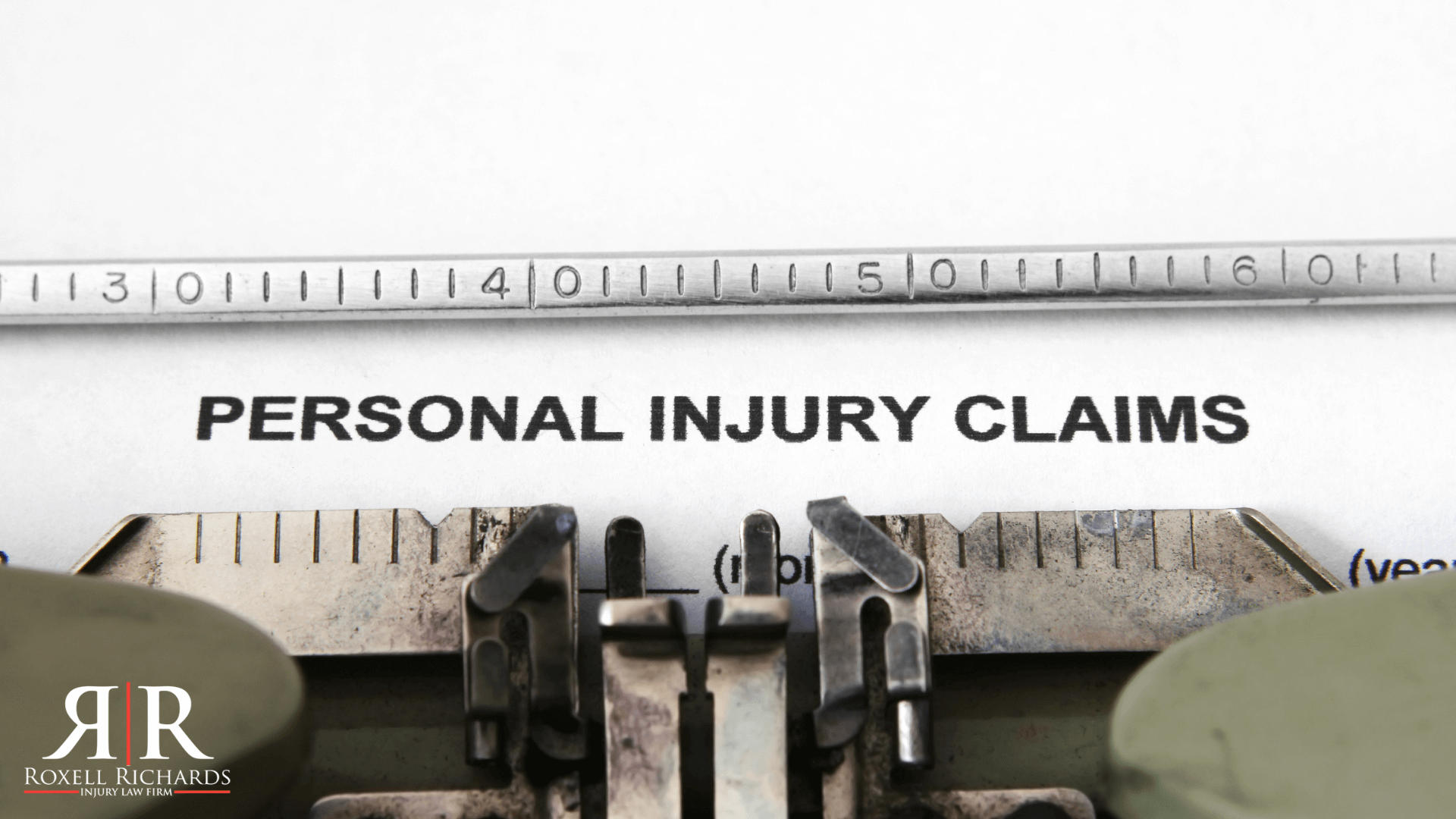Demystifying Personal Injury Protection: Texas Edition
Personal injury protection (PIP) is an important part of auto insurance in Texas and other states. Drivers must understand PIP because it can make a big difference if you’re in an accident.
In this blog post, we’ll explain PIP in Texas, answer common questions, and help you understand how it works. By the end, you’ll better grasp this important aspect of auto insurance.
Texas Personal Injury Protection
Personal Injury Protection (PIP) is auto insurance coverage that provides financial support for medical expenses, lost wages, and other related costs resulting from an accident.
It is made to ensure that individuals involved in an accident can access immediate medical treatment and financial assistance, regardless of who is at fault. PIP coverage can help alleviate the financial burden and provide timely support for accident victims in Texas.
In Texas, PIP coverage is not mandatory but is an optional addition to your auto insurance policy. By choosing to include PIP in your coverage, you can benefit from the additional protection it offers in the event of an accident.
It is important to note that PIP coverage is distinct from liability insurance, which covers damages and injuries you may cause to others.
When you have PIP coverage in Texas, it typically extends to you, your passengers, and members of your household who are injured in a covered accident.
This means that even if you are at fault for the accident, you can still receive financial assistance for your medical expenses and other eligible costs.
PIP coverage in Texas typically includes medical expenses, lost wages, and additional expenses related to the accident. It can help cover hospital bills, doctor’s fees, medication, rehabilitation services, and necessary medical equipment.
PIP can also compensate for a portion of your lost wages if you cannot work due to the injuries sustained in the accident.
It’s important to review the specifics of your PIP coverage, as policy terms and limits may vary. Some policies may restrict the types of medical treatments it covers or limit the coverage available.
Understanding PIP Coverage
Understanding the details of your PIP coverage can help you make informed decisions. Moreover, this will ensure you have financial protection in an accident.
Texas Personal Injury Protection (PIP) is an optional coverage that can be added to your auto insurance policy. Regardless of fault, it provides financial support for medical expenses, lost wages, and other costs resulting from an accident.
While not mandatory, PIP can offer valuable assistance and peace of mind in times of need. Consult with your insurance provider to understand the terms and limits of your PIP coverage and choose the option that best suits your needs.
PIP: How does it work?
PIP coverage provides a broad range of benefits to policyholders and their passengers. Here are key aspects of how PIP works:
- Coverage for Medical Expenses: PIP covers a portion of the medical expenses incurred due to an accident. This can include hospital bills, doctor’s fees, surgery costs, medication, rehabilitation services, and necessary medical equipment. PIP may also cover expenses such as X-rays, diagnostic tests, and ambulance fees.
- Lost Wages Coverage: PIP can compensate for a portion of your lost wages if you cannot work due to the injuries sustained in the car accident. This coverage can help alleviate the financial burden of being unable to earn income during your recovery period.
- Funeral Expenses: PIP may pay for funeral costs in the tragic case of a fatal accident up to the policy’s predetermined limits. This can provide support and financial assistance to the deceased person’s family in covering the costs associated with funeral arrangements.
- Non-Medical Expenses: PIP coverage may extend to certain non-medical expenses related to the accident. For example, it can help cover the cost of essential services you cannot perform due to the injuries, such as household chores or childcare.
- No-Fault Coverage: PIP is often called “no-fault” coverage because it provides benefits regardless of who is at fault for the accident. This means you can receive PIP benefits even if you caused the accident. However, the coverage limits and eligibility criteria vary depending on your insurance policy.
It’s important to note that PIP insurance coverage has its limits and may not cover all expenses from an accident.
Policy Terms and Conditions
Policy terms and conditions, including deductibles and coverage limits, can vary depending on the insurance provider and your specific policy.
Reviewing your insurance policy and discussing the details with your insurance provider can help you understand your PIP coverage’s benefits and limitations.
Mandatory Insurance in Texas
In Texas, drivers are required to have liability insurance coverage to operate a motor vehicle legally. Liability insurance is designed to provide financial protection for damages and injuries caused to others in an accident for which you are at fault.
The minimum liability insurance requirements in Texas, often referred to as the “30/60/25″ rule, are as follows:
- $30,000 for bodily injury per person: Your insurance policy must provide coverage of at least $30,000 for each individual injured in an accident you caused.
- $60,000 for bodily injury per accident: This requirement sets a minimum coverage limit of $60,000 for the total bodily injury liability for all individuals injured in an accident you caused.
- $25,000 for property damage per accident: This mandates a minimum coverage limit of $25,000 for property damage liability. This covers the cost of repairing or replacing another person’s property damaged in an accident you caused.
These minimum liability insurance requirements are in place to ensure that drivers have a level of financial responsibility. To compensate others for damages and injuries resulting from their actions on the road. Proof of liability insurance is typically a requirement when registering a vehicle or when law enforcement officers ask during a traffic stop or after an accident.
Failure to maintain mandatory liability insurance in Texas can result in penalties and consequences. These may include fines, suspension of vehicle registration, driver’s license suspension, and potential liability for damages caused in an accident.
Difference Between Medical Payments and PIP in Texas
Medical Payments (MedPay) coverage and Personal Injury Protection (PIP) are both types of auto insurance coverage. And these auto insurance coverage assist with medical expenses resulting from an accident. While they share similarities, there are distinct differences between MedPay and PIP, especially regarding their scope of coverage and applicability in Texas.
Coverage Scope
- MedPay Coverage: Medical Payments coverage typically focuses solely on medical expenses. It provides coverage for necessary medical treatments and services resulting from an accident, regardless of fault. MedPay can cover expenses such as hospital bills, doctor’s fees, surgery costs, X-rays, and other medical treatments related to the accident.
- PIP Coverage: Personal Injury Protection (PIP) coverage, on the other hand, offers broader coverage. In addition to medical expenses, PIP can also provide benefits for lost wages and rehabilitation services. And even including other related costs resulting from an accident. PIP is often called “no-fault” coverage because it provides benefits regardless of who is at fault for the accident.
Mandatory Requirement
- MedPay Coverage: MedPay is not a mandatory coverage in Texas. Drivers can include an optional add-on in their auto insurance policy to provide additional coverage for medical expenses.
- PIP Coverage: PIP coverage is also not mandatory in Texas. Similar to MedPay, it is an optional coverage that drivers can select to enhance their insurance policy. And this obtains additional protection for medical expenses and other related costs resulting from an accident.
Recovery and Subrogation
- MedPay Coverage: MedPay coverage typically does not involve subrogation. Subrogation refers to the process by which an insurance company seeks reimbursement from the at-fault party’s insurance for the expenses they have paid. With MedPay, the focus is primarily on providing immediate coverage for medical expenses without the involvement of subrogation.
- PIP Coverage: PIP coverage, in contrast, often involves subrogation. Your insurance company might ask the at-fault party’s insurance to pay back the PIP benefits they gave you.
Policy Limits and Deductibles
MedPay and PIP coverages have specific policy limits and may require the payment of deductibles. Policy limits refer to the maximum amount the insurance company will pay for covered expenses. Deductibles, however, are the amount the policyholder must pay out of pocket before the insurance coverage applies.
It’s essential to review the terms and conditions of your insurance policy to understand the specific coverage. Including the limits and deductibles associated with MedPay and PIP coverages.
Consulting with your insurance provider and lawyer with great case results and testimonials can further clarify everything. And they can help you make informed decisions about the appropriate coverage for your needs.
Texas: Is it a No-fault state?
Texas is not a no-fault insurance state. It follows a “fault” or “at-fault” system regarding auto insurance. Under this system, the party responsible for causing the accident is typically liable for the resulting damages and injuries.
In a no-fault insurance system, each driver’s insurance company would pay their policyholder’s medical expenses and other costs. This is regardless of who is responsible for the accident. However, in Texas, the at-fault driver’s insurance primarily compensates the accident victims.
Texas operates under a modification of the comparative fault rule. And this means that the degree of fault determines the proportion of damages awarded to each party involved in the accident.
A reduction or elimination of a person’s compensation may happen if found to be partially at fault for the accident. And this depends on the percentage of their assigned fault.
However, if a person is less than 51% at fault, they can still seek compensation from the other party involved in the accident.
It’s important to note that while Texas law is not a no-fault state, it still is a requirement for drivers to carry liability insurance.
This personal injury claims insurance coverage helps protect others if the insured driver is at fault in an accident. And that the at-fault driver is held responsible for property damage or bodily injury.
Recovering Personal Injury Protection in Texas
In Texas, personal injury protection (PIP) coverage is typically recoverable. If someone else causes an accident that injures you, their insurance might have to pay for your medical bills and other related expenses.
PIP coverage in Texas is “first-party” coverage, meaning that your insurance pays for your medical expenses and other covered costs regardless of fault.
However, if another party is determined to be at fault for the accident, you may have the option to pursue a claim. And you may pursue a claim against their liability insurance to recover the expenses that your PIP covers.
Difference Between Personal Accident and Personal Injury coverage
Personal accident and injury cover are insurance policies that provide financial protection in the event of accidents resulting in bodily injury.
While they may seem similar, there are distinct differences between these two types of coverage.
Personal Accident Cover:
Personal accident cover, or accidental death and dismemberment (AD&D) insurance, typically provides financial benefits. Especially in the event of accidental death, dismemberment, or disability from an accident.
The coverage is usually limited to accidents and does not extend to illnesses or other non-accident-related incidents.
Key features of personal accident coverage include:
- Accidental Death Benefit: If the person with the policy passes away because of a covered accident, their chosen beneficiaries receive a one-time payment.
- Dismemberment Benefit: If the insured person loses a limb or body part because of a covered accident, they receive a set amount of money as compensation.
- Disability Benefit: In the case of permanent or temporary disability resulting from an accident, the policy may provide financial compensation. And it will be according to the level of disability and the policy’s terms and conditions.
Personal accident coverage typically focuses on providing financial support for the insured or their beneficiaries in the event of accidental death, dismemberment, or disability. It is important to review the specific terms and limitations of the policy to understand the exact benefits provided.
Personal Injury Cover:
On the other hand, personal injury protection insurance is a type of insurance coverage that assists with medical expenses and related costs resulting from an accident.
It provides coverage for bodily injuries, regardless of whether the injury was accidental or due to someone else’s negligence.
Key features of personal injury protection coverage include:
- Medical Expenses: Personal injury case coverage typically pays for medical expenses resulting from an accident. Including hospital bills, doctor’s fees, medications, rehabilitation costs, and necessary medical treatments.
- Other Related Costs: It may also cover additional costs such as transportation expenses for medical appointments, home healthcare services, and non-medical expenses incurred due to the injury.
Personal injury coverage is broader in scope compared to personal accident coverage. Because it encompasses a wider range of injuries resulting from accidents, regardless of whether they are accidental or due to negligence.
This coverage focuses on providing financial assistance for medical expenses and related costs associated with the injury.
Ensure to carefully read and understand the details of personal accident and injury cover policies.
This will help you choose the right insurance option, whether you prioritize coverage for accidental death. Including dismemberment or medical expenses and related costs from accidents.
Consulting with an insurance professional and a legal Texas personal injury lawyer can provide further guidance. Moreover, they can help you make an informed decision according to your specific circumstances in a free consultation.






